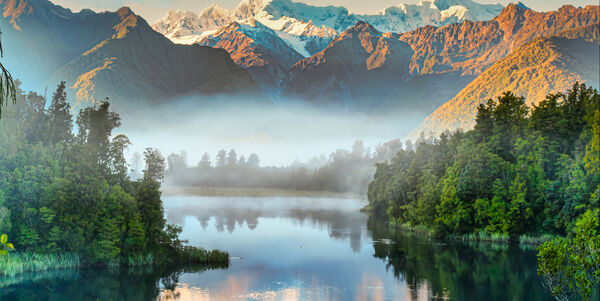New Zealand’s roads are generally high quality and well maintained. You might be surprised at the lack of potholes, the wide lanes and smooth surface. However, there are more remote areas and roads which pass through natural hazards we rarely experience in the UK, so be alert and follow the primary rules of the road.
Keep left!
Speed limit
On the open road the limit is 100 kph (90 kph for motorhomes over 3500 kg). In built up areas, keep below 50 kph, unless otherwise indicated.
Stop!
Always stop completely at a stop sign – or risk a fine.
Pull over
Motorhomes are slower than the average car, so be considerate and pull over when possible and safe to allow vehicles behind to pass. With wide roads, and frequent lay bys, this is usually easy.
Overtaking
Never overtake if it means crossing a solid yellow line on your side of the centre line.
Single lane bridges
There are a number of these, especially in more remote areas like the West Coast. They are signposted so simply note whether you, or the vehicles approaching, have right of way.
Rail crossings
Only half of the 1500 rail crossings in New Zealand have automatic alarms with a red light system. The rest just have a ‘Railway Crossing’ sign and ‘Give Way/Stop’ sign. In these instances you should stop and look carefully before crossing the track.
Parking
Unlike the UK, it is an offence to park on the wrong side of the road, facing the oncoming traffic. You could be fined or towed away.
Basic laws
Many rules of the road are identical to those in the UK: don’t use mobile phone when driving, always wear a seat belt, don’t drink and drive, have a valid driving licence with you (must be in English). Give Way signs and roundabouts are treated in the same way as in the UK.
